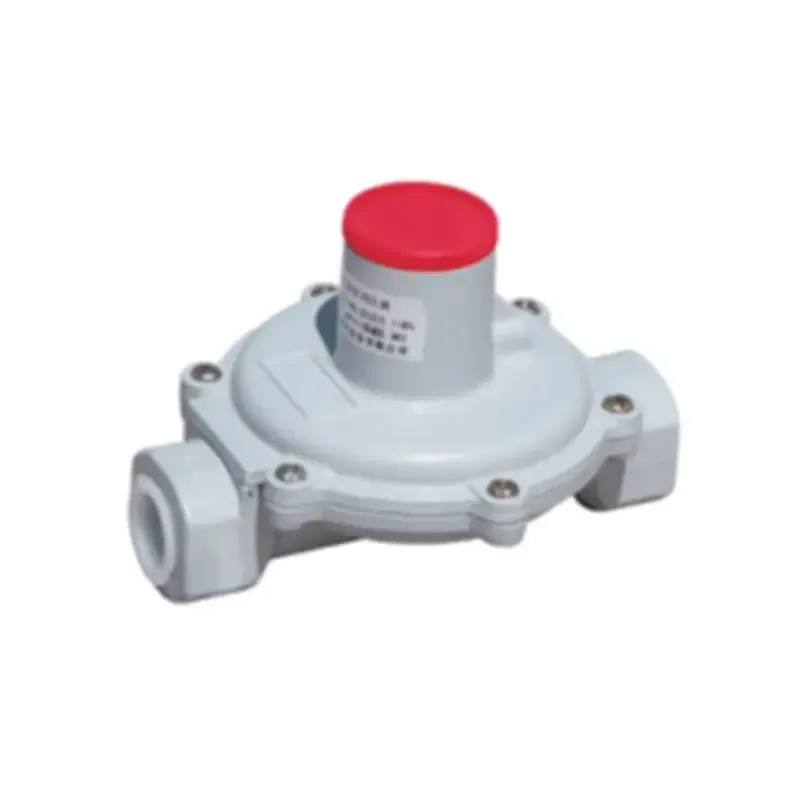
Dec . 06, 2024 04:31
Back to list
صمام تنظيم ضغط الغاز
Gas Pressure Regulation Understanding the Role of Pressure Control Valves
Gas pressure regulation is a critical process in various industrial applications, including gas distribution networks, manufacturing, and energy production. One of the key components in this process is the pressure control valve, commonly referred to as a pressure regulating valve (PRV). These valves are essential for maintaining a consistent and safe pressure level in gas systems, thereby ensuring operational efficiency and safety.
What Is a Pressure Control Valve?
A pressure control valve is a mechanical device designed to control the pressure of gases within a system. It adjusts the flow of gas based on the downstream pressure requirements, ensuring that the gas delivered to the end-user is at the appropriate level. This valve serves to prevent pressure fluctuations that could lead to damage or inefficiencies in the system.
How Does a Pressure Control Valve Work?
The basic operation of a pressure control valve involves two main components the sensing element and the actuation mechanism. The sensing element monitors the gas pressure in the system and relays this information to the valve. When the pressure exceeds a preset limit, the valve adjusts its position to reduce the flow, effectively lowering the downstream pressure. Conversely, if the pressure drops below the desired level, the valve opens further to increase flow, boosting the pressure back to the required level.
.
Applications of Pressure Control Valves
صمام تنظيم ضغط الغاز

Pressure control valves are used in a wide range of applications. In the natural gas industry, they play a crucial role in distribution networks, regulating the pressure of gas as it moves from transmission lines to consumers. In manufacturing processes, PRVs help maintain precise gas pressures necessary for optimal production conditions, such as in the production of chemicals and pharmaceuticals.
Additionally, pressure control valves are vital in the energy sector, particularly in power plants where gas is used as a fuel source. They ensure that gas turbines operate efficiently by maintaining consistent fuel pressure, thus maximizing energy output while minimizing environmental impact.
Importance of Proper Sizing and Selection
Selecting the appropriate pressure control valve for a specific application is essential for optimal performance. Factors such as the type of gas, required flow rate, and pressure levels must be taken into consideration. An incorrectly sized valve can lead to inadequate pressure control, which may result in operational inefficiencies or even hazardous situations.
Moreover, maintenance is a crucial aspect of ensuring the longevity and reliability of pressure control valves. Regular inspections and servicing help to identify any issues before they escalate, thus maintaining the integrity of the gas system.
Conclusion
In conclusion, pressure control valves are integral components in the management of gas pressure across various industries. Their ability to automatically adjust to changing conditions helps maintain safety, efficiency, and reliability in gas delivery systems. As technology advances, the design and functionality of these valves continue to evolve, further enhancing their performance. Understanding the importance of proper valve selection and maintenance is crucial for operators and engineers tasked with managing gas systems, ensuring that they operate smoothly and safely. With the ongoing demand for energy and gas, the role of pressure control valves remains vital in supporting a sustainable and efficient infrastructure.
Latest news
-
Safety Valve Spring-Loaded Design Overpressure ProtectionNewsJul.25,2025
-
Precision Voltage Regulator AC5 Accuracy Grade PerformanceNewsJul.25,2025
-
Natural Gas Pressure Regulating Skid Industrial Pipeline ApplicationsNewsJul.25,2025
-
Natural Gas Filter Stainless Steel Mesh Element DesignNewsJul.25,2025
-
Gas Pressure Regulator Valve Direct-Acting Spring-Loaded DesignNewsJul.25,2025
-
Decompression Equipment Multi-Stage Heat Exchange System DesignNewsJul.25,2025

